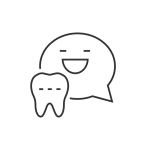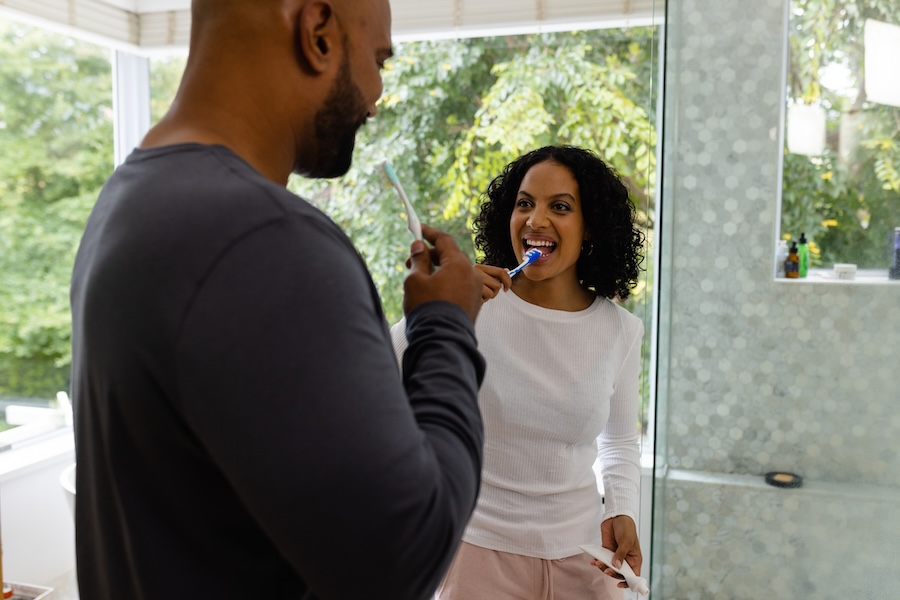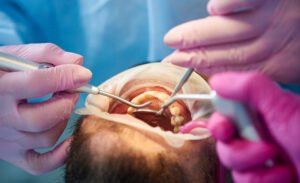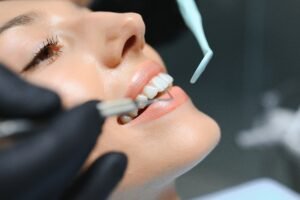Understanding and implementing effective everyday oral hygiene tips is paramount for a radiant smile and optimal oral health. Dental health is crucial to our overall well-being, influencing our smiles and having far-reaching implications for our general health.
The mouth is a gateway to the body, making oral hygiene a vital part of our daily routine. So, the journey to maintaining impeccable dental health is laden with misconceptions and often overlooked practices.
It’s not just about brushing twice daily but about adopting a holistic approach to dental care. In this comprehensive guide, we’ll navigate through 5 essential everyday oral hygiene tips, shedding light on the do’s and don’ts that can make or break your oral health.
These tips are not just for those struggling with dental issues but are fundamental practices that everyone should incorporate into their daily lives for better dental health in Calgary.
#1. Brushing: Technique Matters
The importance of using a soft-bristled toothbrush and fluoride toothpaste cannot be overstated. Soft bristles are gentle on the gums and enamel, reducing the risk of causing irritation or abrasion. Fluoride toothpaste is essential because fluoride is a natural mineral that strengthens tooth enamel and helps prevent tooth decay. When brushing, it’s crucial to use gentle, circular motions.
This technique ensures that all surfaces of the teeth – the outer surfaces, inner surfaces, and the chewing surfaces – are thoroughly cleaned. It’s also important to brush twice daily for at least two minutes to remove plaque and bacteria effectively.
Don’t: Brushing too hard is a common mistake. Aggressive brushing can lead to gum recession and wear down the enamel, the hard outer layer of the teeth. This can increase sensitivity and susceptibility to cavities. Always brush gently to protect your gums and enamel.
Read More: Top-Rated Dental Clinics in Calgary: How to Find the Best Fit for You
2. Flossing: An Unmissable Step
Flossing at least once daily is essential for removing plaque and food particles from areas between the teeth where a toothbrush can’t reach. Plaque build-up can lead to tooth decay and gum disease. Flossing is particularly important for maintaining the health of the gums, as it removes plaque and bacteria that contribute to gingivitis (gum inflammation). It’s best to use a gentle sawing motion to bring the floss between the teeth, then curve it into a “C” shape against one tooth and gently slide it into the space between the gum and tooth.
Don’t: Many people either skip flossing or floss too aggressively. Aggressive flossing can damage the gums, causing bleeding and swelling. It’s important to be thorough but gentle. If you find flossing with string difficult, consider using floss picks or an interdental cleaner that can be easier to handle.
3. Diet: Watch What You Eat
Your diet plays a significant role in oral health. Eating crunchy fruits and vegetables, like apples, carrots, and celery, can help clean your teeth naturally. These foods have a high water content, which dilutes the effects of the sugars they contain and stimulates saliva flow. Saliva helps to wash away food particles and neutralize harmful acids. Additionally, dairy products like cheese and yogurt are high in calcium and phosphates, which can help remineralize tooth enamel.
Read More: Discover the Best Teeth Cleaning Services Near You for a Brighter, Healthier Smile!
Don’t: Sugary and acidic foods and beverages harm oral health. Sugar feeds the harmful bacteria in the mouth, producing acids that erode tooth enamel and cause cavities. Acidic foods and drinks, such as citrus fruits and soda, can also erode enamel and lead to tooth decay. It is important to limit these items in your diet and rinse your mouth with water after consuming them to neutralize their effects.
By focusing on these aspects of everyday oral hygiene tips, you can significantly improve your dental health, ensuring a healthier mouth and a brighter smile. Good oral hygiene combines the right techniques, tools, and lifestyle choices.
4. Tongue Cleaning: Often Forgotten
Regularly cleaning your tongue is essential to your everyday oral hygiene tips. The tongue’s surface is home to countless bacteria, one of the major causes of bad breath (halitosis) and other oral health issues. Using a tongue scraper or the bristles of your toothbrush, you can effectively remove the biofilm, food debris, fungi, and dead cells that often reside on the tongue’s surface.
This process not only helps in maintaining fresh breath but also contributes to overall oral health. The technique involves gently scraping from the back of the tongue to the front, ensuring that all areas are covered.
Must See: Emergency Dental Care in Calgary: What to Do and Where to Go
Don’t: Neglecting to clean your tongue can lead to several oral health problems. The bacteria accumulating on the tongue can contribute to tooth decay and gum disease as they transfer to other parts of the mouth. Moreover, the buildup of these bacteria and other debris on the tongue can lead to an undesirable condition known as ‘black hairy tongue.’ While not typically harmful, this condition can cause bad breath and affect the sense of taste.
5. Regular Dental Check-ups
Typically recommended every six months, scheduling and adhering to regular dental check-ups is a cornerstone of preventive dental care.
These visits are crucial for several reasons:
Early Detection of Problems: Regular check-ups allow your dentist to detect issues like cavities, gum disease, and even oral cancer at an early stage, often before you experience any symptoms. Early detection usually translates to easier and less costly treatments.
Must See: Ultimate Guide to Teeth Whitening in Calgary
Professional Cleaning: Professional cleanings are essential no matter how diligent your at-home oral hygiene routine is. A dental hygienist can remove plaque and tartar that you can’t remove yourself, preventing decay and gum disease.
Personalized Dental Advice: Regular visits allow your dentist to offer tailored advice on improving your oral hygiene based on observing your oral health over time.
Monitoring of Ongoing Issues: If you have ongoing dental issues, such as receding gums or a history of cavities, regular check-ups help monitor these conditions and prevent their progression.
Consult at The Best Dental Clinic in Calgary
We help patients prevent dental issues to ensure early detection and treatment of problems. Our approach addresses existing conditions and educates our patients with the knowledge and tools necessary for proactive dental care.
By focusing on preventative strategies, we aim to minimize the risk of serious dental complications in the future.
Click here to book an appointment.















